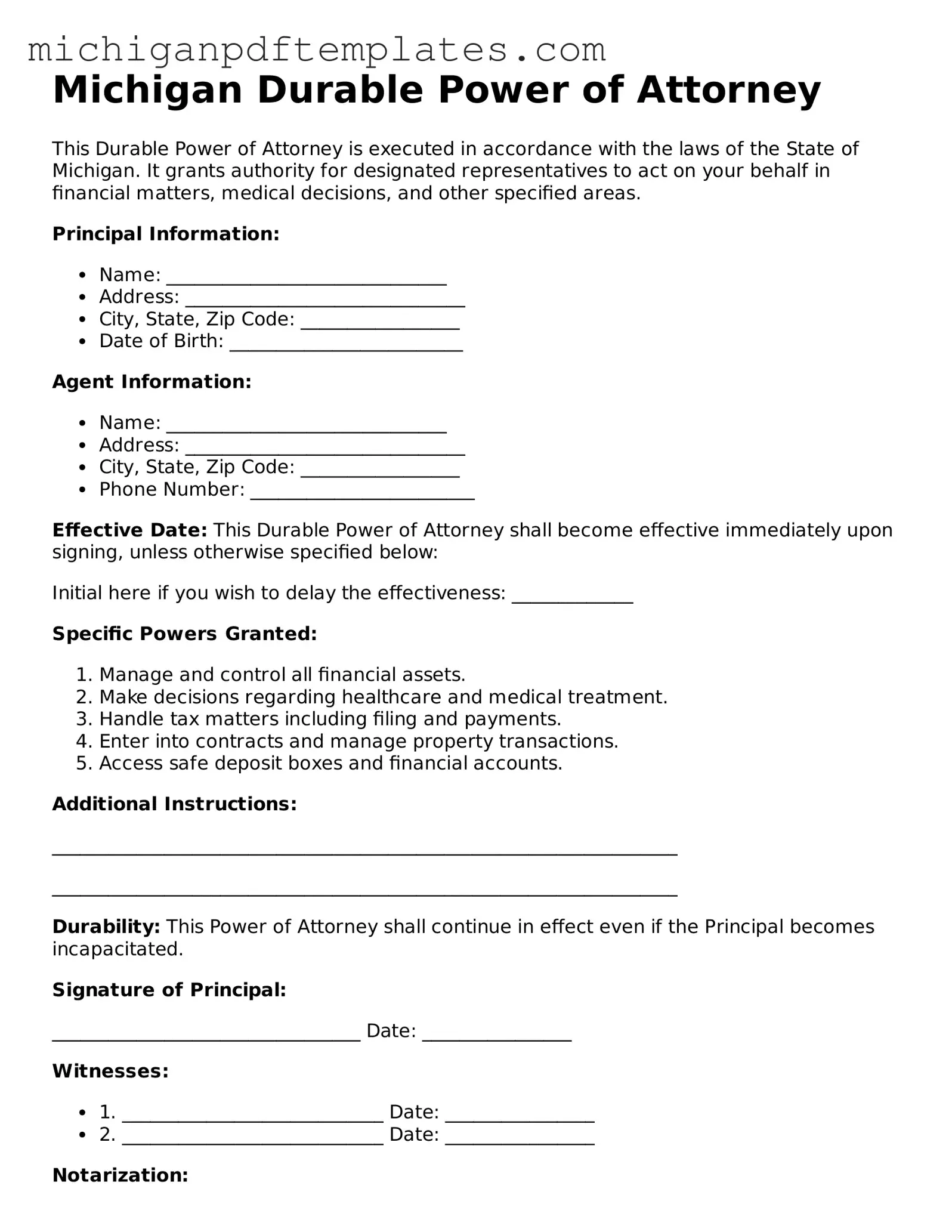Legal Michigan Durable Power of Attorney Template
A Michigan Durable Power of Attorney form is a legal document that allows an individual to appoint someone else to make decisions on their behalf, even if they become incapacitated. This form ensures that your wishes regarding financial and medical matters are respected when you are unable to communicate them. To take control of your future, consider filling out this essential form by clicking the button below.
Get Your Form Now

Legal Michigan Durable Power of Attorney Template
Get Your Form Now

Get Your Form Now
or
▼ PDF Form
Finish this form quickly and move on
Fill in and complete Durable Power of Attorney online quickly.